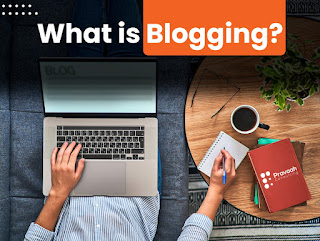Understanding Hush Money: What It Is, Why It's Used, and Its Legal Implications
Hush money is a term that often makes headlines, especially in the context of scandals or legal disputes. While many people have heard the term, its meaning and implications might not always be clear. In this blog, we’ll break down what hush money is, why it’s used, and the potential legal and ethical issues surrounding it.
What Is Hush Money?
Hush money refers to a payment made to someone to keep them silent about certain information, usually something controversial, embarrassing, or damaging to the payer's reputation. This money is often offered to prevent the individual from disclosing sensitive information, such as details of an affair, a corporate scandal, or illegal activity.
The person receiving hush money agrees to keep quiet and not share the information with others, often in exchange for a lump sum of money or other valuable compensation.
Why Is Hush Money Used?
To Prevent Damage to Reputation
Many high-profile figures—politicians, business leaders, and celebrities—use hush money to protect their public image. A scandal, if exposed, could ruin careers, relationships, or businesses. For instance, someone may be paid hush money to stay quiet about an extramarital affair, harassment, or misconduct.To Avoid Legal Consequences
In some cases, hush money may be offered as a way to prevent a lawsuit or other legal repercussions. Instead of engaging in a prolonged legal battle, a party may offer money to settle the matter privately.To Settle Business or Personal Conflicts
Hush money can also be used in non-disclosure agreements (NDAs) to prevent individuals from sharing information about a company’s proprietary information or a personal dispute. This is common in employment settings or private business dealings.
Legal and Ethical Issues Surrounding Hush Money
While hush money is not illegal in itself, the reasons for paying it and the circumstances surrounding its use can raise significant legal and ethical questions.
1. Non-Disclosure Agreements (NDAs) and Coercion
NDAs are often used as a legal tool to protect sensitive information. However, when used to silence victims of harassment or illegal activity, they can be considered coercive or unethical. If a person is forced to sign an NDA under duress, such as to prevent them from going public about harassment, it can result in legal action or public backlash.
2. Attempting to Conceal Criminal Activity
If hush money is paid to silence someone about illegal or unethical behavior, such as bribery, corruption, or assault, it can lead to criminal charges. In some cases, paying hush money can be classified as obstruction of justice or witness tampering, both of which are serious offenses.
3. Exploiting Vulnerability
Hush money can sometimes be used to exploit vulnerable individuals, such as employees or people involved in power dynamics. In cases where a person is coerced into accepting hush money to keep quiet about misconduct or abuse, it raises serious ethical and legal concerns about fairness and justice.
Notable Examples of Hush Money in the News
Celebrity Scandals: Hush money has been famously associated with celebrity scandals, where actors, politicians, or business moguls pay large sums to keep details of affairs or illicit behavior hidden from the public. One of the most well-known examples includes the case of Stormy Daniels, a pornographic actress who claimed she received hush money in exchange for staying quiet about her alleged affair with former U.S. President Donald Trump.
Corporate Settlements: Companies have also been known to use hush money to cover up internal scandals, such as sexual harassment cases. Often, employees are paid to keep silent about unethical corporate practices or abuse in exchange for monetary settlements.
The Ethics of Hush Money
From an ethical standpoint, hush money can be highly problematic. The act of paying someone to stay silent can undermine accountability and justice. If someone is covering up a crime or misconduct, hush money allows the wrongdoer to avoid consequences and potentially repeat the same behavior.
On the other hand, there are cases where hush money may be used for legitimate reasons, such as protecting business secrets or ensuring privacy in personal matters. However, even in these instances, care should be taken not to coerce or intimidate individuals into silence, especially when there is no wrongdoing involved.
Final Thoughts
Hush money is a complex and often controversial practice. While it’s used to protect privacy, reputation, and avoid legal battles, it can also be seen as a way to cover up unethical or illegal actions. When hush money is paid to silence victims of abuse or to conceal criminal activity, it raises serious concerns about justice, fairness, and accountability.
If you're ever in a situation where hush money is offered or involved, it’s important to consider the ethical implicationsand understand your rights, especially when it comes to legal contracts or non-disclosure agreements.
Understanding the potential consequences of hush money can help you navigate situations where silence is being bought and ensure that justice isn’t sacrificed for financial gain.



Comments
Post a Comment